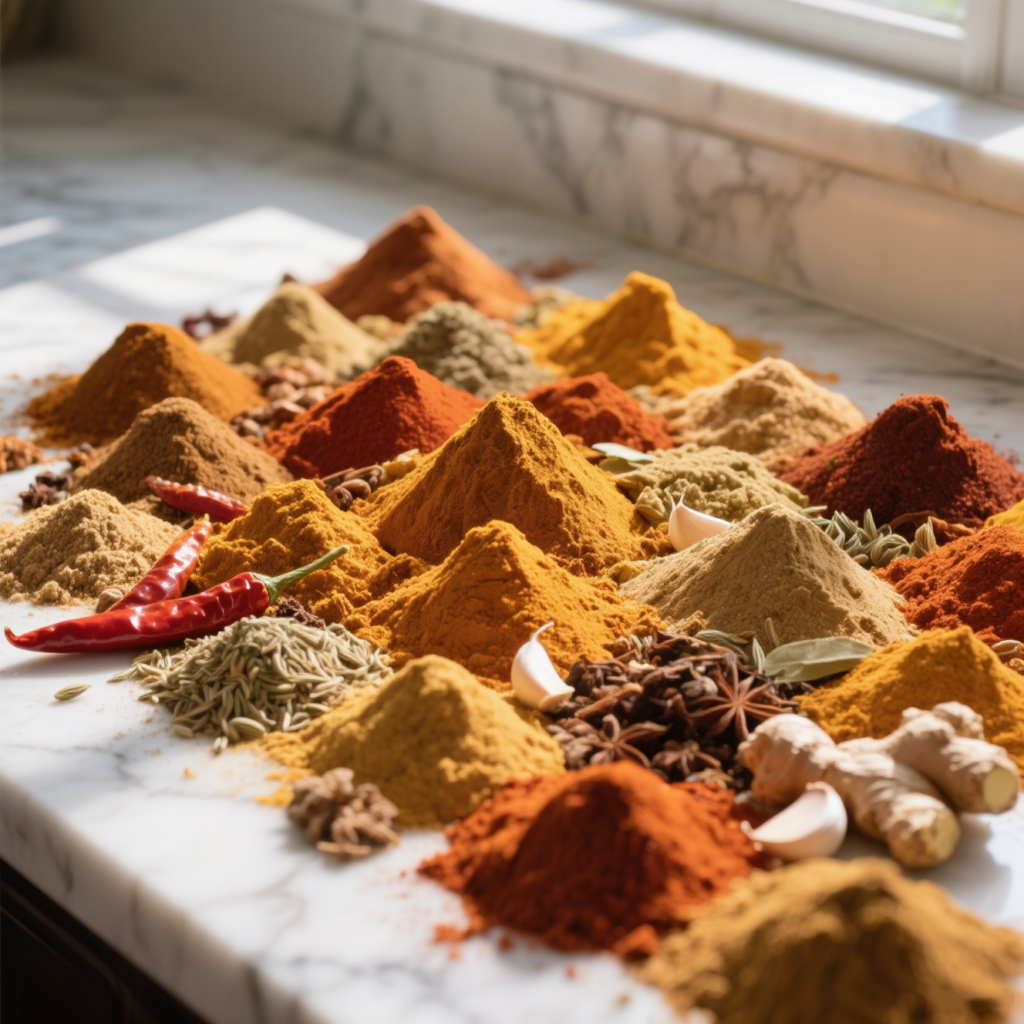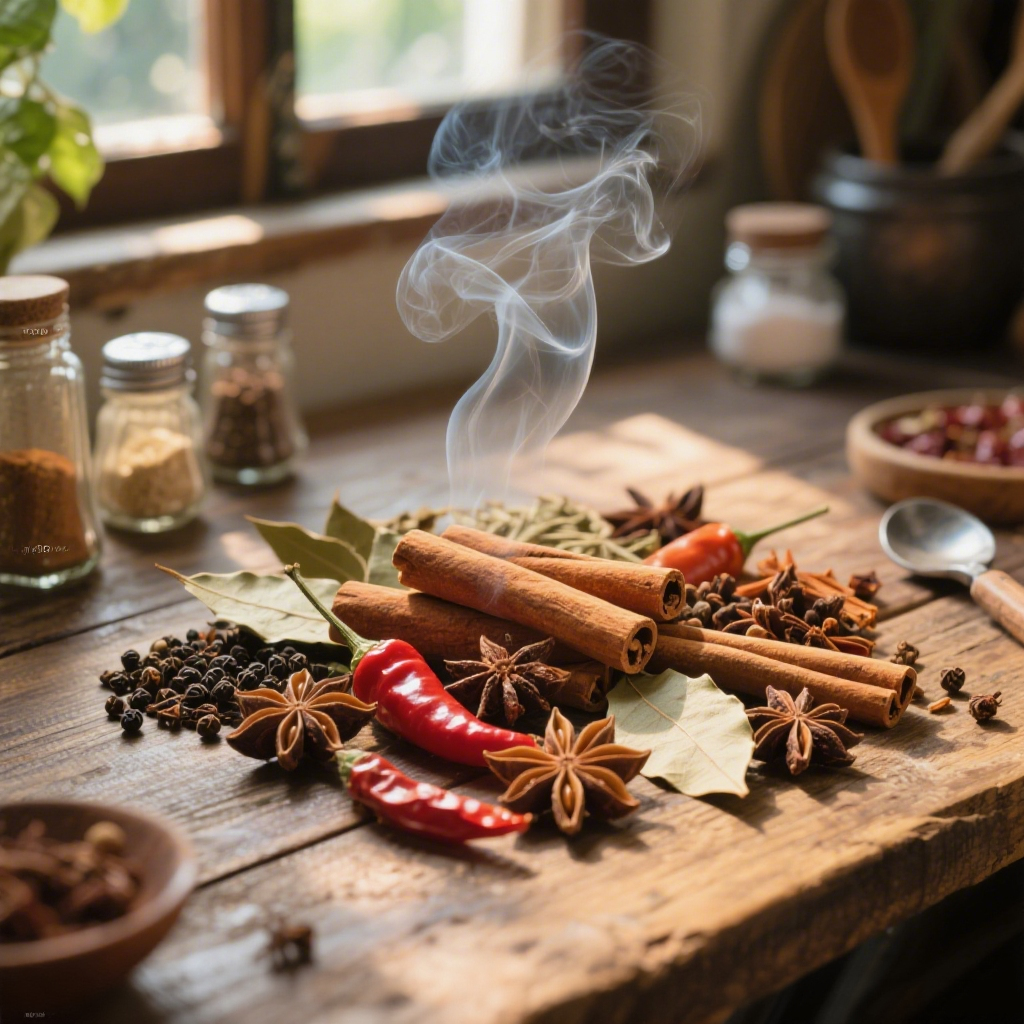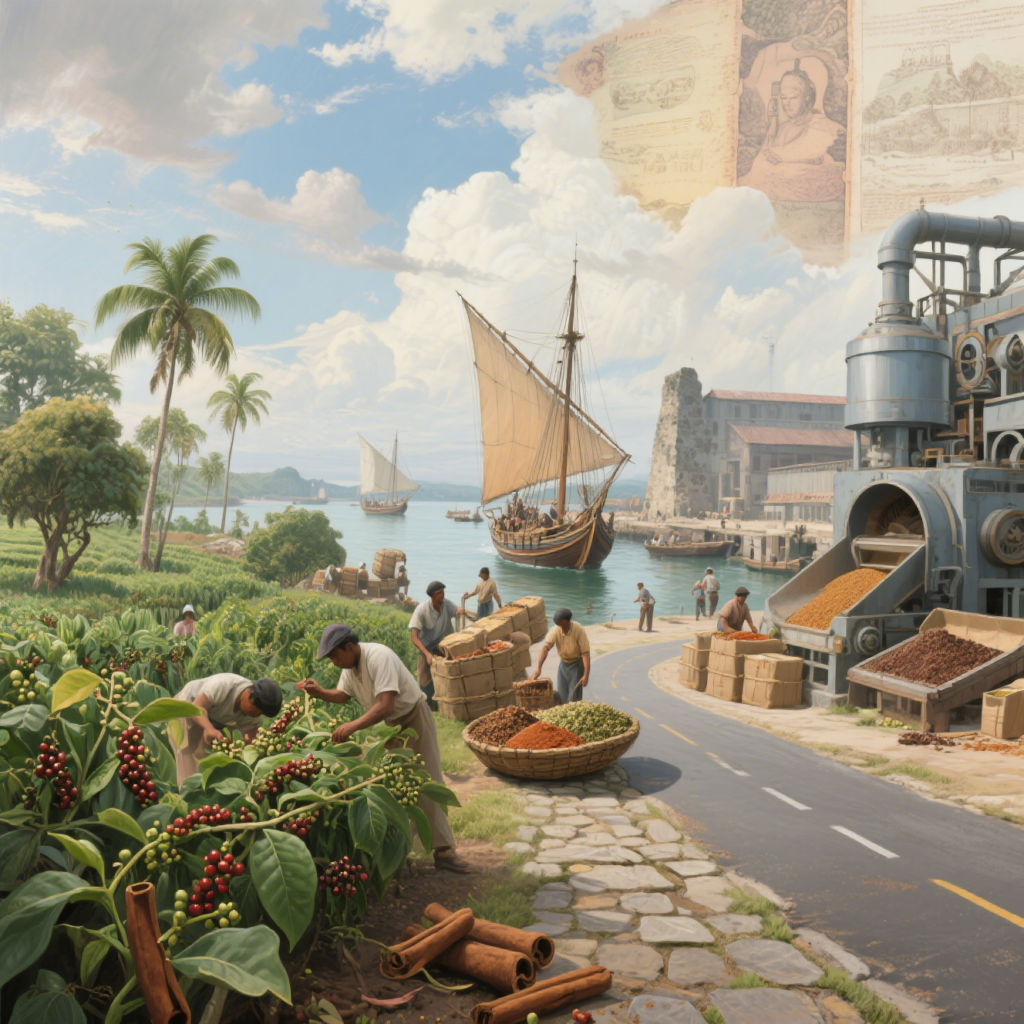A Millennia-Long Evolution of Spice
Products
When a spoonful of golden curry powder slips into the pot, or a pinch of five-spice powder dances over meat, have you ever wondered how these magical powders—awakening our senses—journeyed through millennia to become everyday staples in our kitchens? The history of spice powder is, in truth, a silent symphony of human ingenuity and civilization.
Initially, spices conquered the world in their whole form. In the spice vaults of ancient Egyptian pharaohs, cinnamon sticks and myrrh blocks radiated eternal fragrance; at Roman feasts, whole peppercorns symbolized luxury, even circulating as currency. In medieval Europe, a bag of whole nutmeg or cloves was worth nearly its weight in gold. Venetian ships plowed through waves, and Arab caravans traversed deserts, all to deliver the fragrant treasures of the East to the West. Whole spices, stable and slow to perish, were the natural choice for long, arduous trade routes.
Yet humanity’s quest for nuanced flavors never ceased. The evolution of grinding tools became the key to unlocking spices’ deeper secrets. From the coarse mortars and pestles of ancient civilizations to the delicate grinding scenes in Egyptian tomb murals, spices began shedding their tough exteriors. In medieval monastery kitchens, monks patiently crushed spices to infuse sacred warmth into soups; across East Asia, iron herb grinders turned cinnamon and star anise into fine powders. Especially when windmills and waterwheels were harnessed to power stone mills, spice grinding was freed from backbreaking labor—quietly paving the way for the powdered era.

It was the roaring power of the Industrial Revolution that truly brought spice powder “within reach of ordinary households.” From the late 18th to 19th century, steam engines rumbled through factories. Large-scale mechanical grinders pulverized hard spice pods, roots, and barks into uniform powder at speeds and precision unattainable by hand. The 1810 patent for hermetically sealed tin cans armored powdered spices against humidity and light, solving long-term storage. Soon, glass jars became commonplace, displaying spice powders clearly and enticingly on shop shelves. Technological innovation reshaped spices: powder, prized for its instant convenience and rapid flavor release, gradually replaced whole spices as the market’s new darling.
The 20th century ushered in spice powder’s golden age. Supermarkets mushroomed, their shelves lined with colorful jars of turmeric, chili, cumin—ready-to-use convenience crowned them kings of the modern kitchen. Food giants like Unilever and McCormick, with sharp instincts, launched standardized blends (curry powder, chili powder, five-spice powder) worldwide. Recipes and ads championed “one spoon for complex flavor,” transforming powdered spices from precious treasures to everyday essentials. Intriguingly, curry powder’s popularity in Britain or five-spice powder’s unexpected role in Western BBQ underscores powdered spices as flavor carriers, catalysts for global culinary fusion.
Looking back at the millennia-long journey from whole spices to powdered prominence, each leap forward bears the imprint of human brilliance. This was never mere physical change—it’s a saga woven from technological leaps, commercial ingenuity, and evolving lifestyles. When we twist open a spice jar today, letting ancient aromas ignite flavor in seconds, we taste not just food, but the essence of civilization across time and space. In that fine powder, the whole world unfolds on our tongues—light, fragrant, and profoundly alive.





